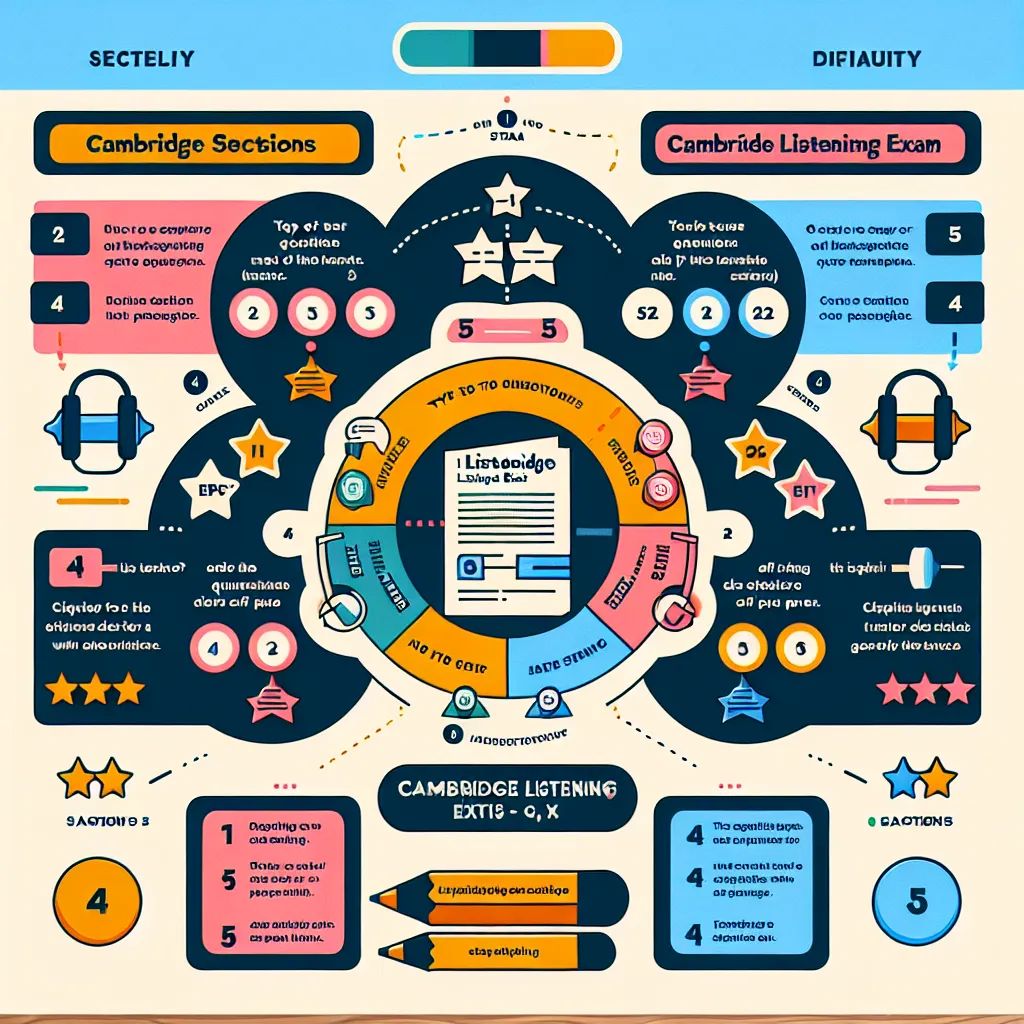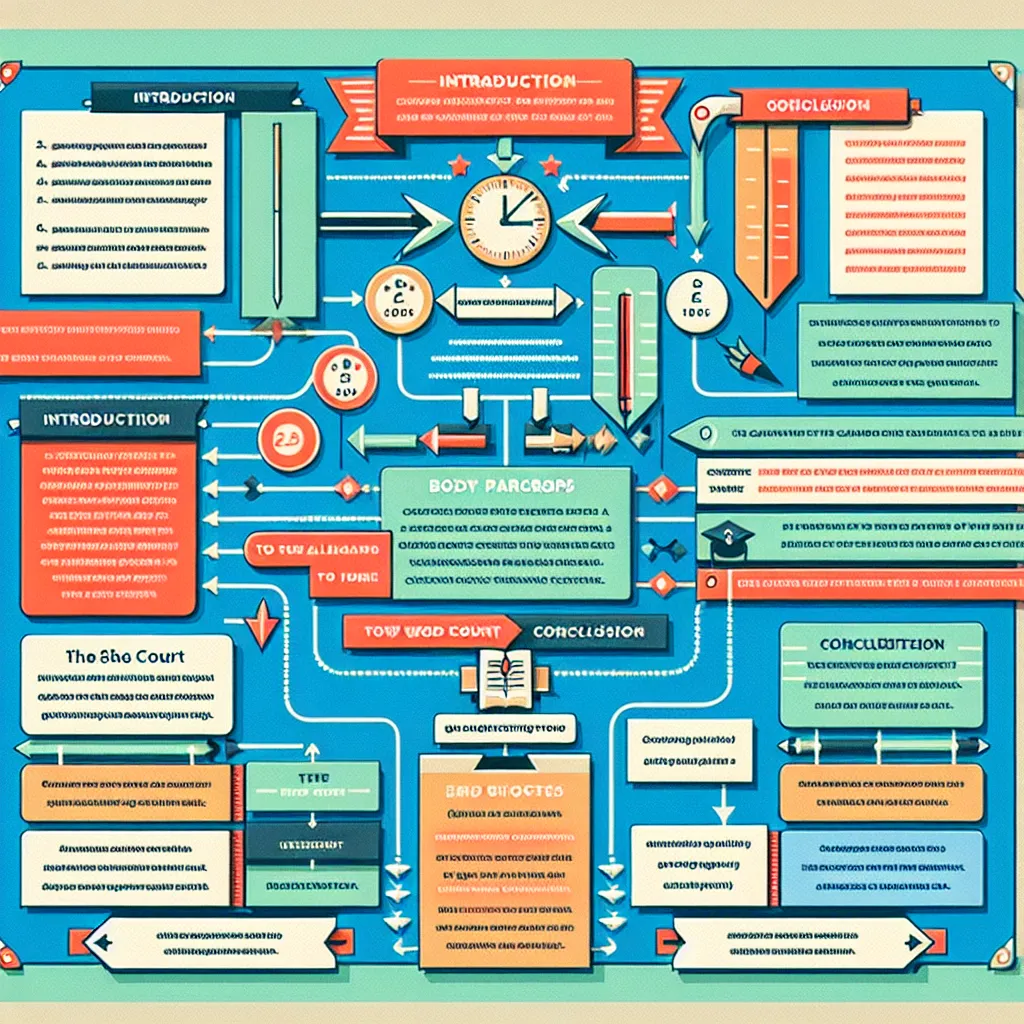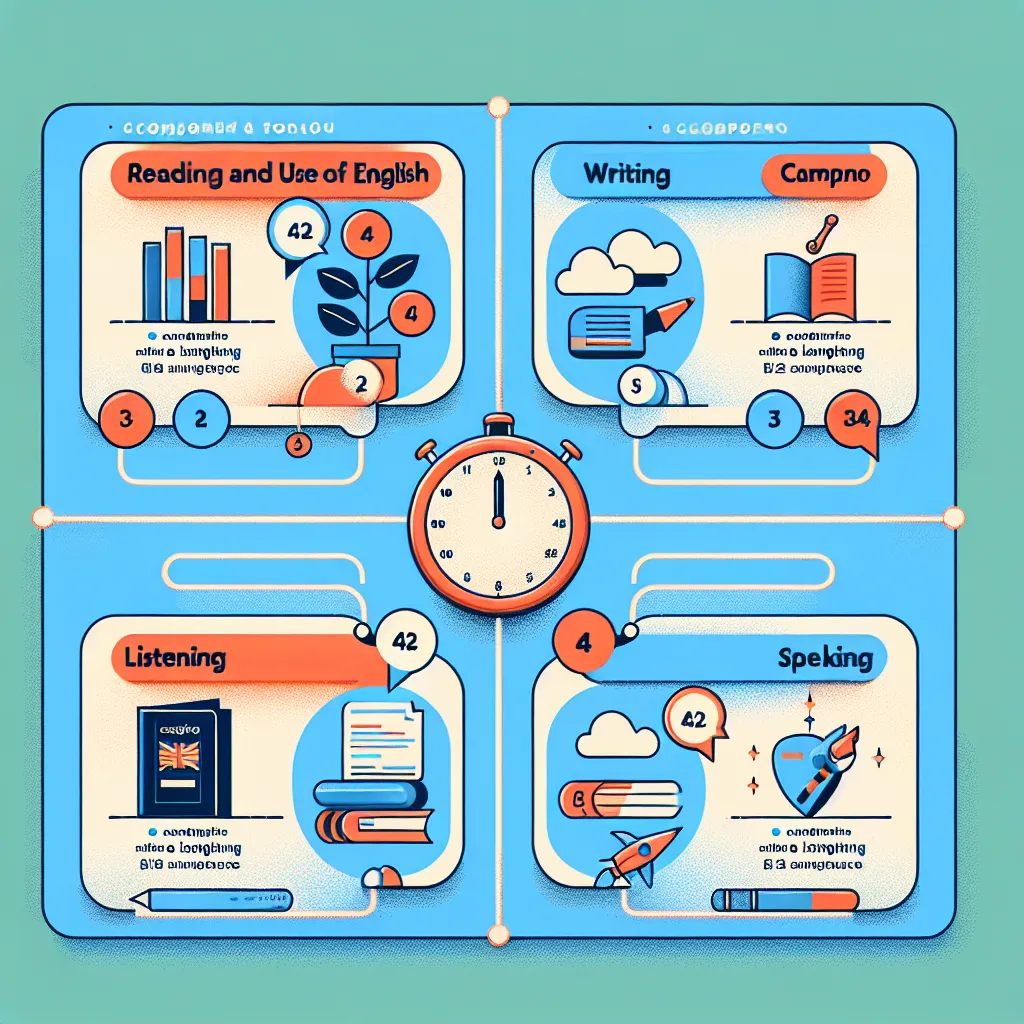Are you preparing for a Cambridge exam and looking to boost your listening score? You’re in the right place! As an experienced Cambridge examiner and content creator for LearnEnglish.NET, I’m here to share proven strategies that will help you improve your Cambridge listening score quickly and effectively.
Understanding the Cambridge Listening Test
Before diving into improvement strategies, it’s crucial to understand the structure of the Cambridge listening test. Typically, the test consists of four parts, each with different question types and increasing difficulty levels. The audio recordings cover a range of accents and situations, reflecting real-life scenarios.
 Cambridge Listening Test Structure
Cambridge Listening Test Structure
Common Challenges in Cambridge Listening
Many test-takers struggle with:
- Understanding different accents
- Keeping up with the speed of native speakers
- Identifying key information amidst distractors
- Managing time effectively during the test
Quick Strategies to Improve Your Cambridge Listening Score
1. Immerse Yourself in English Audio
One of the fastest ways to improve your listening skills is through constant exposure to English audio content.
- Listen to English podcasts daily
- Watch English TV shows and movies without subtitles
- Tune into English radio stations
Aim for at least 30 minutes of active listening each day. This consistent practice will help you become more familiar with various accents and speaking speeds.
2. Practice with Past Papers
Cambridge past papers are invaluable resources for improving your listening score quickly.
- Complete at least one full listening test per week
- Time yourself strictly to simulate exam conditions
- Review your answers and identify patterns in your mistakes
By familiarizing yourself with the test format and question types, you’ll feel more confident on exam day.
3. Focus on Prediction Skills
Developing strong prediction skills can significantly boost your listening score.
- Before each recording, quickly read the questions
- Underline key words and anticipate possible answers
- Think about the context and likely vocabulary
This strategy helps you listen more actively and increases your chances of catching the correct information.
4. Improve Your Note-Taking Technique
Effective note-taking is crucial, especially for longer listening passages.
- Use abbreviations and symbols
- Focus on key information (who, what, when, where, why, how)
- Practice note-taking while listening to news broadcasts or TED talks
Remember, your notes are just for you, so develop a system that works best for your understanding.
5. Expand Your Vocabulary
A broader vocabulary will help you understand more of what you hear.
- Learn new words in context through reading and listening
- Focus on common academic and formal vocabulary used in Cambridge exams
- Practice using new words in sentences to reinforce understanding
Aim to learn 10-15 new words each week, focusing on those relevant to common Cambridge listening topics.
 Vocabulary Improvement Techniques
Vocabulary Improvement Techniques
Advanced Techniques for Rapid Improvement
1. Shadow Native Speakers
Shadowing is a technique where you repeat what you hear immediately after the speaker.
- Choose a short audio clip (30 seconds to 1 minute)
- Listen and repeat, mimicking the speaker’s intonation and rhythm
- Gradually increase the length and complexity of the audio
This technique improves your listening comprehension and pronunciation simultaneously.
2. Transcribe Audio Clips
Transcription is a powerful tool for honing your listening skills.
- Select a 2-3 minute audio clip
- Listen and write down everything you hear
- Compare your transcription with the original script
- Focus on words or phrases you missed
This exercise trains your ear to catch details and improves your overall comprehension.
3. Practice Active Listening
Engage with the audio content more deeply by:
- Summarizing main points after listening
- Discussing the content with a study partner
- Predicting what might come next in a conversation or lecture
Active listening helps you retain information better and improves your overall comprehension skills.
Common Pitfalls to Avoid
- Translating in your head: This slows you down. Try to understand the English directly.
- Fixating on unknown words: Keep listening even if you don’t understand every word.
- Neglecting practice: Consistent practice is key. Even 15 minutes daily is better than occasional long sessions.
- Ignoring instructions: Always read the instructions carefully before each section.
Next Steps: Your Action Plan
- Assess your current listening level with a Cambridge practice test
- Set specific, measurable goals (e.g., “Improve my score by 10% in 4 weeks”)
- Create a daily listening practice schedule
- Track your progress weekly and adjust your strategies as needed
Remember, improving your Cambridge listening score is a journey. Stay consistent, be patient with yourself, and celebrate small victories along the way.
By following these expert tips and strategies, you’ll be well on your way to improving your Cambridge listening score quickly and effectively. Keep practicing, stay motivated, and success will follow!
[internal_links]
- Cambridge Speaking Tips: Ace Your Oral Exam
- Top Cambridge Writing Strategies for Higher Scores
- Cambridge Reading Comprehension: Techniques for Success




